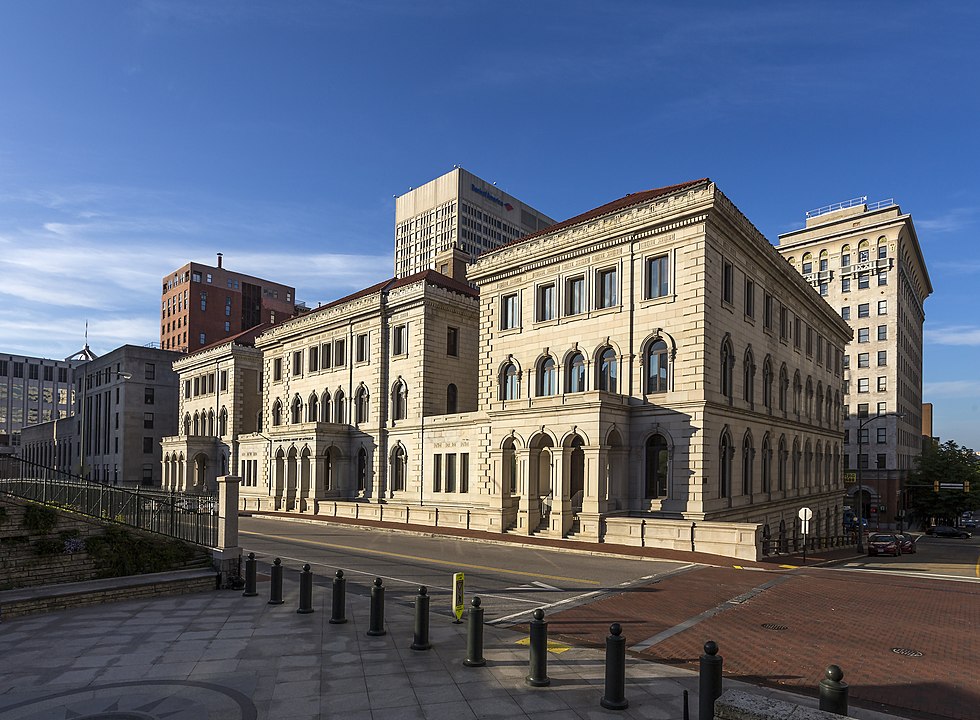RALEIGH, N.C. (CN) — A federal judge incorrectly halted a North Carolina law requiring voters to present photo ID at the polls, a Fourth Circuit panel ruled on Wednesday.
Reversing a lower-court decision, a three-judge panel unanimously ruled to allow the Tar Heel State’s latest photo ID law to move forward.
The appeals court panel responsible for Wednesday’s reversal was made up of U.S. Circuit Judge Pamela Harris, a Barack Obama nominee, as well as Trump-nominated Judges Julius Richardson and A. Marvin Quattlebaum Jr.
When the state’s Republican supermajority of legislators approved the 2018 law — after overriding Democratic Governor Roy Cooper’s veto — the state and county chapters of the NAACP swiftly filed a federal challenge.
The lawsuit, filed in the Middle District of North Carolina, alleged the measure was “passed with a discriminatory intent and will produce discriminatory results on African-American and Latinx voters.”
Siding with the civil rights group in December 2019, U.S. District Judge Loretta Biggs ruled that the law was influenced by racial bias.
She cited a case involving a previous North Carolina voter ID law that had been struck down on similar grounds and issued a preliminary injunction that blocked the latest law from moving forward.
But, the Fourth Circuit on Wednesday said she made the wrong decision and failed to focus on the law itself.
The 29-page opinion written by Judge Richardson states that the lower court erred by not adhering to prior circuit findings and Supreme Court precedent.
“Instead, it considered the North Carolina General Assembly’s past conduct to bear so heavily on its later acts that it was virtually impossible for it to pass a voter-ID law that meets constitutional muster,” Richardson wrote.
He added that the way Biggs made this decision improperly reversed the burden of proof onto the lawmakers.
More simply put, Richardson said, the district court penalized the General Assembly “because of who they were, instead of what they did.”
The panel wrote that it has no doubt “there is a long and shameful history of race-based voter suppression in North Carolina,” but clarified that previous findings do not “freeze North Carolina election law in place.”
The NAACP and other critics say the identification requirement would create just another unnecessary barrier for already disenfranchised voters.
“There is no room for racially discriminatory law under our Constitution and under the Voting Rights Act,” said T. Anthony Spearman, president of the state’s NAACP chapter, in response to Wednesday’s ruling.
“The NC NAACP will not rest until we have vindicated fully the rights of African Americans, the Latinx community, and the most vulnerable in this state to access the sacred right to vote,” Spearman added.
The case can still be appealed in federal court, and NAACP attorney Irv Joyner said the organization is considering all appellate options in light of Wednesday’s decision.
Members of the organization “steadfastly believe” that Judge Biggs’s findings were “correct at the preliminary injunction phase,” Joyner said in a statement.
“Nonetheless, under the reasoning of the decision today, NC NAACP Plaintiffs’ evidence will also prevail at trial on the full merits and we look forward to the fight for justice ahead,” the attorney added.
The ruling was applauded by Republican lawmakers who have sought for years to enact a voter ID law in North Carolina.
Many GOP leaders have argued that such a law could bolster election security.
“Now that a federal appeals court has approved North Carolina’s voter ID law and constitutional amendment, they must be implemented for the next election cycle in our state,” Republican State House Speaker Tim Moore, who sponsored the 2018 constitutional amendment behind the law, said in a statement on Wednesday.
The law was barred from impacting the 2020 elections and is still frozen while a separate state case is pending.
“Our fight continues no matter the makeup of any court or any one decision, good or bad, on the journey to free and fair political participation,” Spearman said.
Subscribe to Closing Arguments
Sign up for new weekly newsletter Closing Arguments to get the latest about ongoing trials, major litigation and hot cases and rulings in courthouses around the U.S. and the world.









